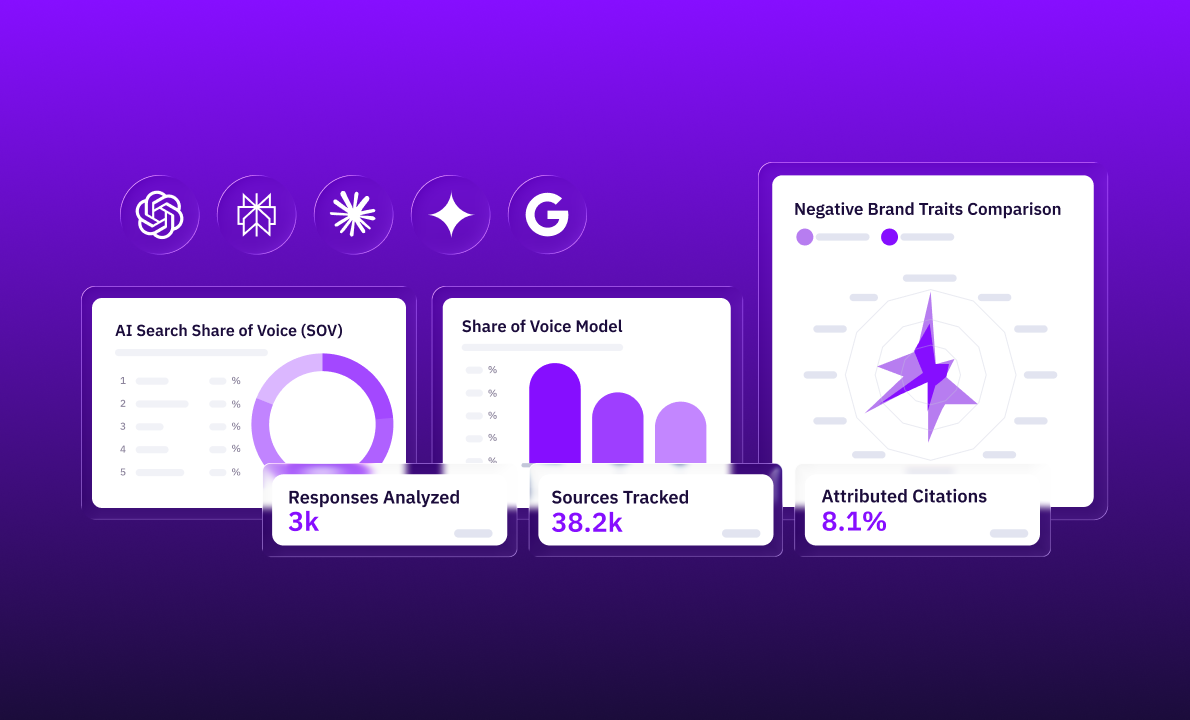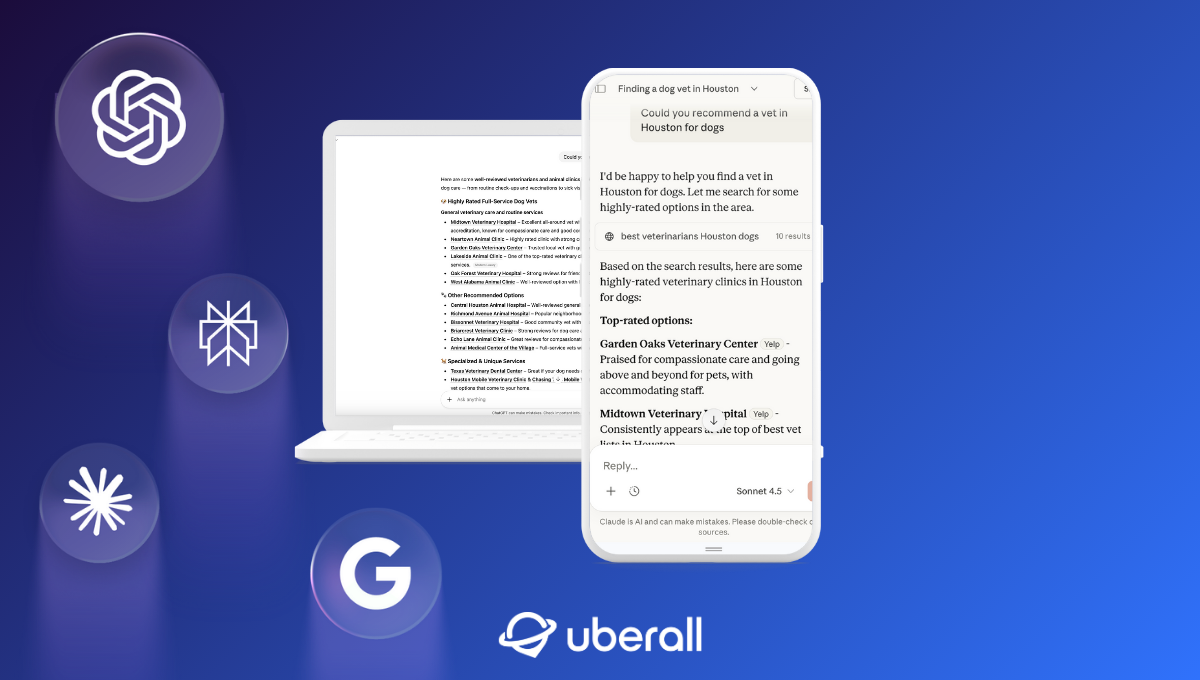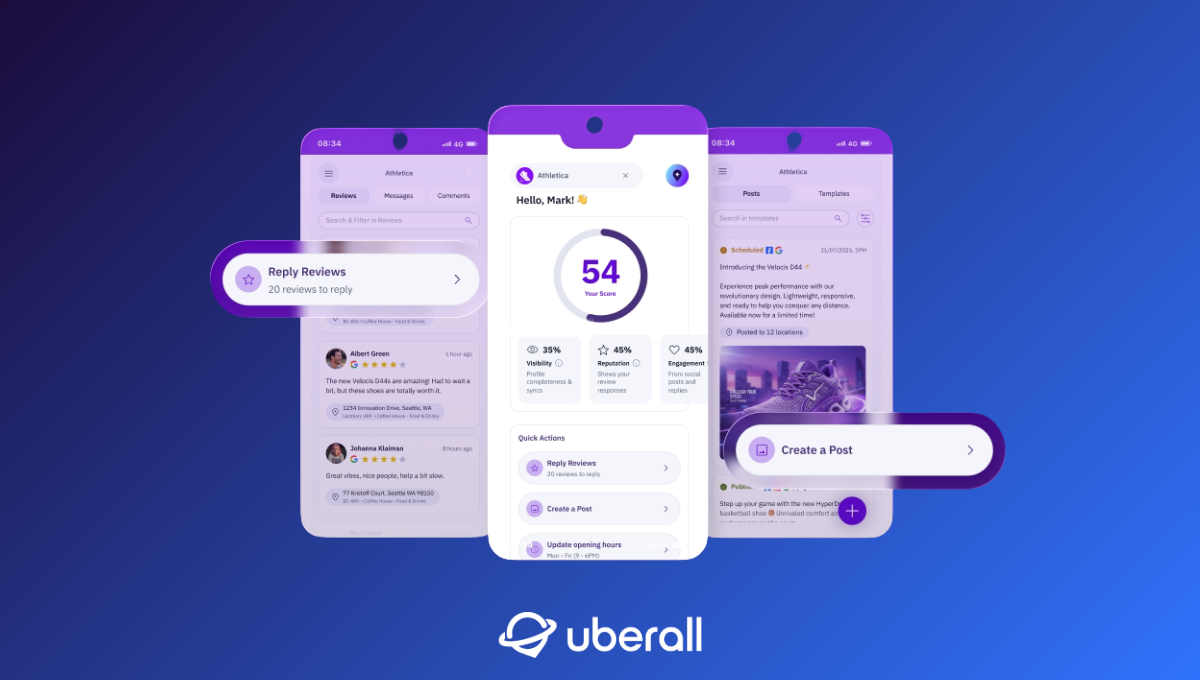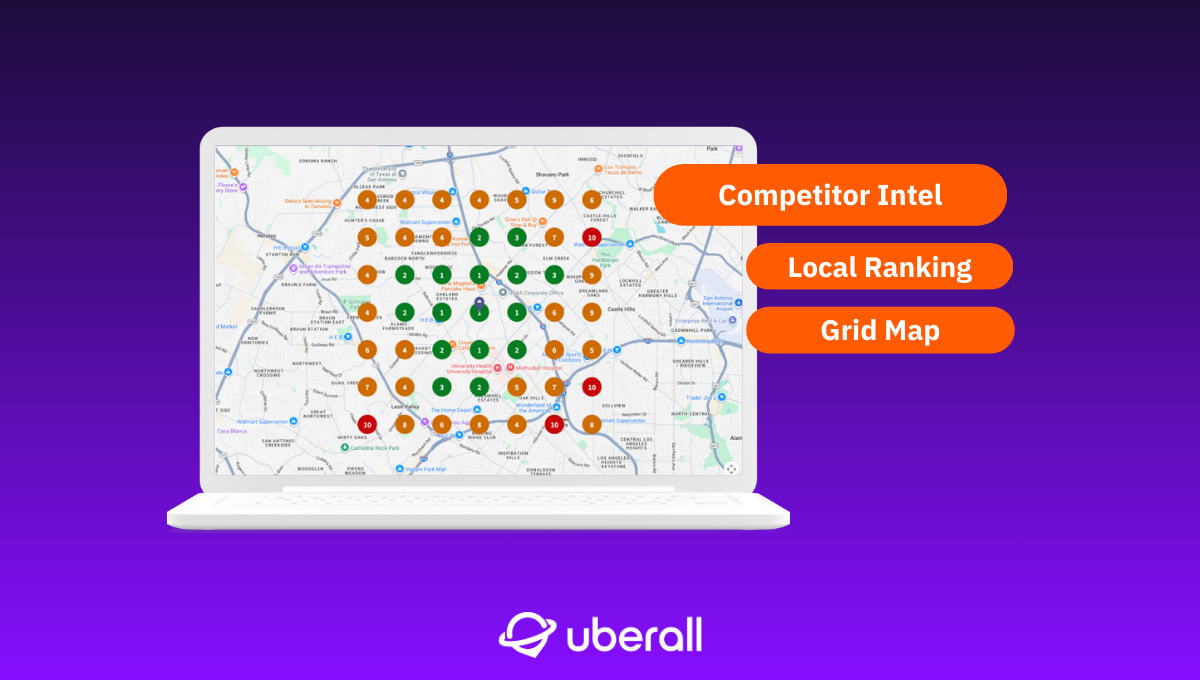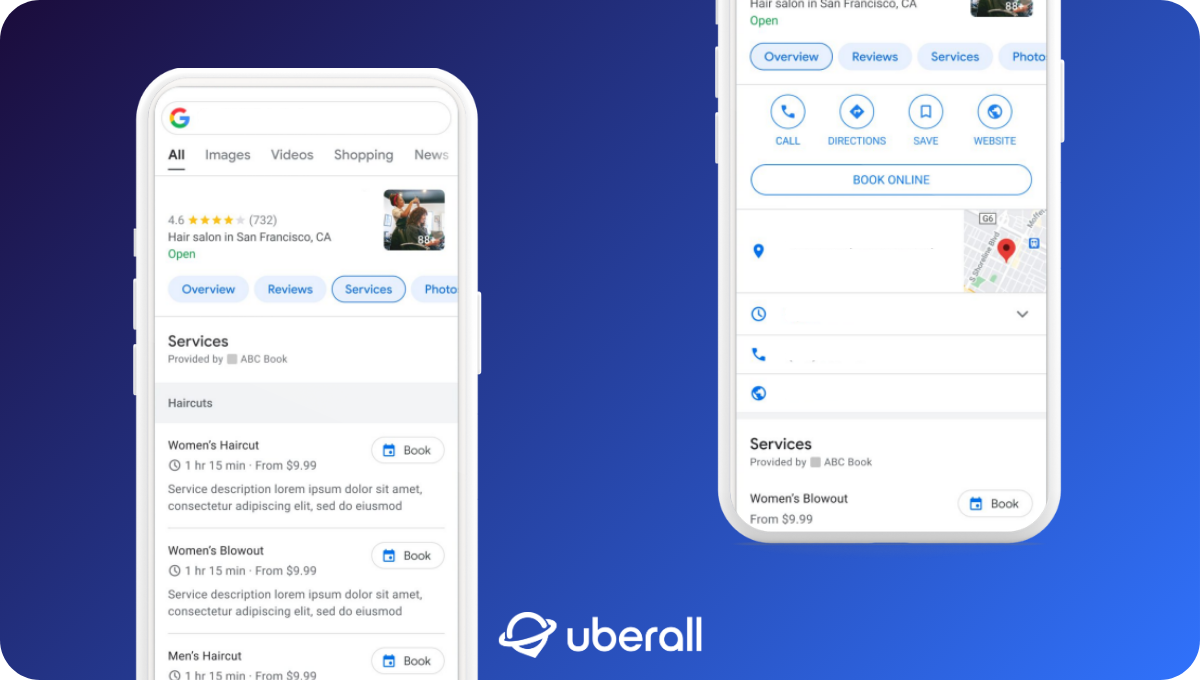
Can You Influence How Your Business Gets Found in ChatGPT and Other LLMs?
Find out how you can influence your business’ visibility in ChatGPT or other LLMs — straight from our Technical Product Manager Luma.
Not all data sources are created equal — it’s a cliché way to start an article, but it’s true.
But what do we mean by data sources? We’re talking about the different types of information that AI systems like ChatGPT and Gemini pull from to generate answers and surface search results. These can include:
- Structured data: Business listings, product catalogs, location data, and opening hours
- Unstructured content: Website copy, blog articles, FAQs, and landing pages
- Third-party signals: Reviews, ratings, images, and consumer-generated content
- Owned metadata: Schema markup, tags, categories, and attributes
Social content: Posts or updates from linked profiles like Google Business Profile or Instagram
ChatGPT alone had over 122 million daily users in May 2025 — and tools like Gemini, Claude, and Perplexity are catching up fast. Almost one in five consumers currently use AI to find local businesses, according to our Consumer Report, and we’d put money on this number growing further.
This means it’s never been more important to understand where to focus your location performance optimizations in order to show up in these AI systems.
We’ve mapped out the data sources that AI tools like ChatGPT and Perplexity rely on most — especially for local searches like “best frozen yogurt near 33579.”
It’s a mix of what they were trained on and what they search live — and knowing how you can influence your visibility in these local searches can make all the difference.
Do We Have New Ranking Factors in Search?
Many of our clients turn to us for help managing listings across multiple locations and platforms — and based on what we’ve seen in our experiments, it’s clear just how crucial that foundation really is.
So we’ll go through each of these opportunities in more detail.
We ran a test with a local yogurt shop, YogurtCenter (name changed), tracking engagement metrics one month before and after optimizing their site with hyperlocal, structured content — things like flavor descriptions, nutritional info, and FAQs. (You can read more about the experiment in my other article.)
We studied where AI systems currently get their data — and the results (so far) are clear: These systems consistently favored specific data sources when generating summaries. These act as LLM “ranking factors” — much like traditional SEO.
If your business is mentioned in the sources that ChatGPT or other LLMs have been trained on, you’re more likely to be surfaced in answers. These references shape what the model “knows” and which businesses it suggests — particularly in list-style results.
What Should You Optimize for LLM Visibility?
Here’s a summary of how that hierarchy of data sources currently looks, according to our experiments.
Top-Tier Sources: Google
Google remains (for now) the number-one source for local intent queries. Our latest Consumer Report confirms this — more than three in four consumers use Google to find local businesses.
ChatGPT and most AI tools often initiate searches via Google or Bing Search, treating Google Business Profiles as authoritative sources for key information like:
- Reviews
- Location data
- Star ratings
- Hours
- Address
- Photos
- Popular times
Google Maps and Google Local Pack results also heavily influence GPT answers. If a multi-location business does not appear in the top-three Local Pack results, it’s much less likely to be featured in AI-driven auto-suggestions.
That’s why local SEO is still essential — especially for generative engine optimization (GEO).
High-Tier Sources: Yelp
Yelp is one of the most influential sources for food, retail, beauty, and hospitality queries. It frequently appears in AI-generated answers thanks to its strong domain authority and rich user-generated content.
Yelp rankings, review sentiment, and star ratings are often cited verbatim in tools like ChatGPT — and in some cases, the system pulls entire business lists directly from Yelp when responding to “best of” queries. These mentions are heavily shaped by “best of” listicles and recent customer reviews, which help determine whether your business shows up.
Mid-Tier Sources: Industry-Specific Directories and Websites
TripAdvisor, OpenTable, DoorDash, and other delivery apps typically rank as mid-tier data sources — particularly relevant for travel, dining, and takeout-related queries. These platforms are often cited in AI-generated results, especially when users ask about restaurants, cafes, or food delivery options.
Business websites and blogs also fall into this category. When they’re well-optimized for SEO and regularly updated with useful, structured content — like menus, FAQs, customer quotes, or store location pages — LLMs are more likely to reference them in local search summaries.
Lower-Tier Sources: Apple Maps, Bing Places, Foursquare, Facebook
Apple Maps, Bing Places, Foursquare, and Facebook tend to rank lower in the AI data hierarchy. LLMs access these platforms less frequently unless specifically prompted or when higher-priority sources are unavailable. Nevertheless, it’s still critical for you to ensure your profile is complete across these platforms to maintain LLM visibility.
- Apple Maps data is rarely referenced unless part of a specialized integration — such as Apple Business Chat.
- Bing Places appears in Bing Chat but trails far behind Google in influence. In fact, Bing Places is rarely included in Bing’s own AI summaries unless no other source is available.
- Facebook reviews and check-ins can surface, but usually only if they’re publicly shared and indexed.
In these cases, ChatGPT may pull menus, descriptive content, or customer quotes. Other sources like local food bloggers, Reddit, or Google-indexed listicles may also surface.
Don’t Neglect These Other AI Data Sources
Our experiment also highlighted additional platforms that LLMs like ChatGPT regularly reference. These might not be top-tier, but they still play a role in how your business gets discovered — especially for certain verticals or regions.
Here they are in rough order of influence:
- Instagram (if bios and posts are well-optimized and geo-tagged)
- Trustpilot, SiteJabber, ConsumerAffairs (for review-heavy, nonlocal categories)
- Zomato (popular in certain countries for restaurants and cafes)
- Local Chambers of Commerce or city directories
- Niche directories, like HappyCow (vegan), BringFido (pet-friendly), or others based on your industry
These are your new stages — not just for traditional SEO, but also for AI search. That doesn’t mean you should only focus on the highest-ranking sources. For strong, consistent visibility, it’s essential to maintain a presence across as many relevant platforms as possible — and to make sure that presence is structured, accurate, and up to date if you want to appear in real-time, location-based queries.
We know it’s a lot — and managing listings across dozens of platforms is time-consuming, especially at scale. That’s exactly why we built our listings management platform. And now, with our AI Visibility Grader, multi-location businesses can quickly see where they stand and what to prioritize to improve their LLM visibility.
Why LLM Visibility Is Nonnegotiable
While there are no real tactical U-turns or surprises in optimizing for LLMs as opposed to organic search, LLM visibility isn’t random. Like SEO, it follows patterns you can influence, and there are “ranking factors” that have gained importance in the new AI search era.
By understanding these new AI data sources and why businesses should optimize for these platforms, implementing strategic optimizations, and using the right analytics tools to identify opportunities, businesses can ensure they remain discoverable, accurately represented, and competitive in the new search landscape — and the Uberall team is here to help them.
Ready to Transform Your Business?
Connect with our partnership team to learn how Uberall can help you achieve similar results. Get a personalized consultation and discover the opportunities waiting for your business.
Resources







